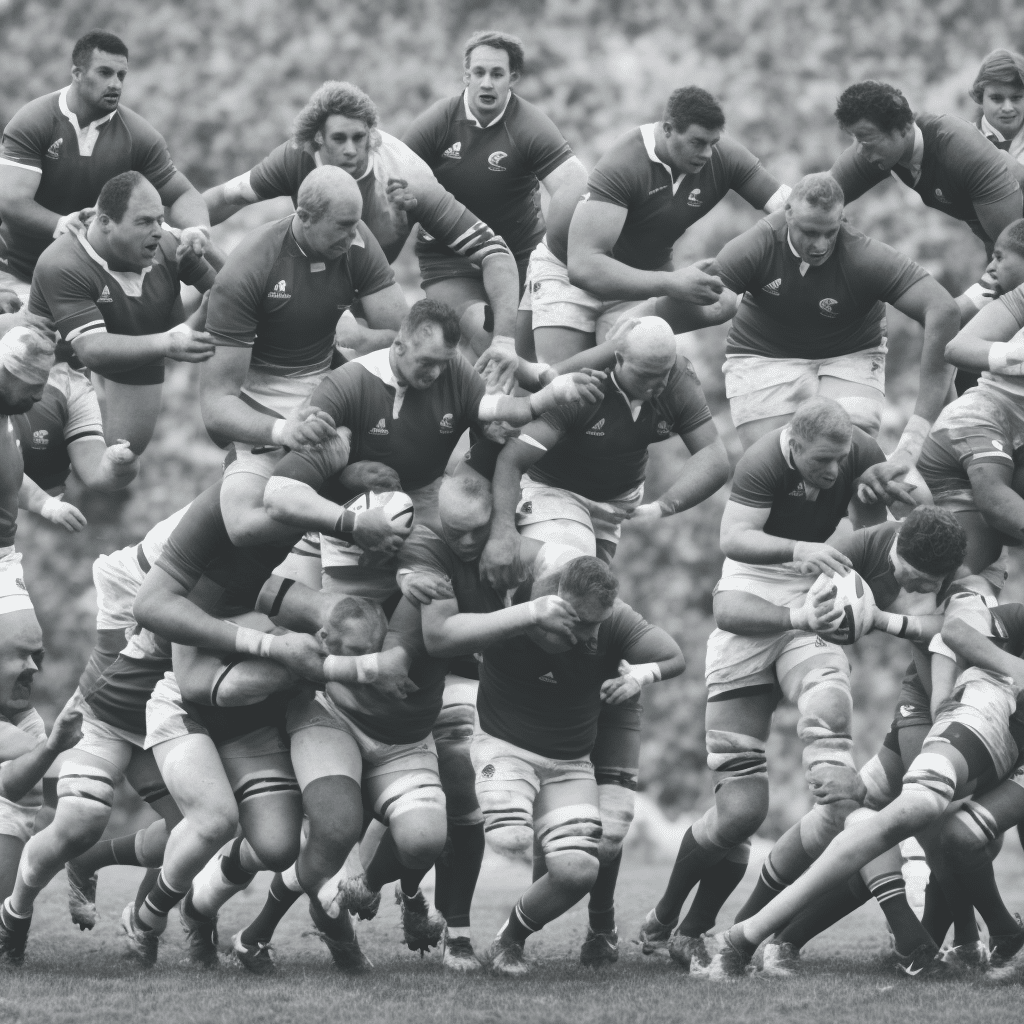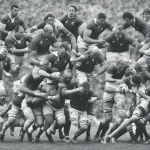In the dynamic and intense realm of team sports, rugby stands out as an especially complex game that demands a high level of skill acquisition. From the intricate rules to the need for physical resilience and mental acuity, mastering rugby requires an effective strategy that will ensure the acquisition and development of necessary skills. As coaches, trainers, and mentors, your role is unequivocally significant in fostering this skill-set. In this article, we will delve into the strategies that can facilitate skill acquisition in this high-powered sport.
Utilising a Constructive Training Environment
Creating a conducive training environment is an indispensable element of skill acquisition. It provides players with the necessary conditions to learn, practice, and perfect their skills. This section will elucidate how to establish such an environment.
Dans le meme genre : How Can Customized Rehabilitation Programs Speed Up Recovery from Sports Hernias?
A constructive training environment is one that encourages players to explore their abilities, learn at their own pace, and continually improve. It should offer both physical and psychological safety. Physical safety involves providing appropriate equipment and ensuring that the training ground is up to standard. Psychological safety means encouraging open communication, supporting players in their failures and successes, and fostering a sense of belonging.
A well-planned training program is another crucial component of a constructive environment. The program should cover all the necessary skills in a sequential and logical manner. This systematic approach allows for a comprehensive understanding and application of each skill. Regular review and adaptation of the training program to meet individual and team needs enhances its effectiveness.
Lire également : What Are the Innovative Methods for Tracking Hydration Levels in Endurance Athletes?
Incorporating Game-Based Training
Game-based training is one of the practical strategies that can enhance skill acquisition. It involves simulating real game scenarios in training sessions. We will look at the benefits and implementation of this strategy.
Game-based training not only improves technical skills but also enhances tactical understanding. By exposing players to the demands and dynamics of a real game, they learn to make quick, informed decisions, adapt to changing situations, and work collaboratively with teammates.
To effectively incorporate game-based training, it is important to create game scenarios that mirror actual match situations. These scenarios should be varied and progressively challenging. This strategy keeps the training engaging and progressively improves the players’ game sense and ability to perform under pressure.
Implementing Deliberate Practice
Deliberate practice is a highly focused form of training that targets specific skills and objectives. It requires players to step out of their comfort zones and dedicate time to meticulously practice and refine their skills. This section will provide a closer look at deliberate practice and its benefits.
Unlike casual practice, deliberate practice is goal-oriented and requires full concentration. It involves repeatedly performing a particular skill, receiving feedback, and making necessary adjustments. This repetitive process enables players to master the targeted skill, enhance their performance, and reduce the likelihood of making errors in actual games.
For deliberate practice to be effective, it is essential to set clear, specific, and achievable goals for each session. Providing constructive feedback is equally important. It helps players understand their strengths, identify areas of improvement, and track their progress.
Promoting Continuous Learning
Continuous learning is a lifelong journey that fuels constant improvement. In the context of rugby, it involves learning from every training session, game, success, and failure. Let’s consider how continuous learning can be encouraged among rugby players.
Continuous learning nurtures a growth mindset, which is instrumental in skill acquisition. Players with a growth mindset understand that they can always improve and that effort is key to mastery. They are more resilient, adaptable, and open to feedback, all of which are crucial for skill acquisition.
To foster continuous learning, it is important to create a learning culture within the team. This can be achieved by encouraging curiosity, reflection, and the sharing of knowledge. Post-game analysis and individual performance reviews are valuable tools in promoting learning.
Leveraging Technology in Training
In today’s digital age, technology plays a pivotal role in training and skill acquisition. It provides tools and platforms that can improve the effectiveness and efficiency of training. In this section, we will explore the use of technology in rugby training.
Video analysis is a popular technological tool in sports training. It allows coaches and players to review performances, identify patterns, and gain insights that can inform training and strategies. Apps and software can also be used to track and monitor players’ fitness, health, and performance data.
Virtual reality (VR) is an emerging technology in sports training. It provides a safe and controlled environment where players can practice and experiment with different strategies. VR can simulate game scenarios, providing players with practical experience and honing their decision-making skills.
While leveraging technology, it is crucial to ensure that it complements, rather than replaces, traditional training methods. Balance is key to ensuring that players not only develop their skills but also maintain the human touch that is intrinsic to the sport.
Embracing Ecological Dynamics in Training
Ecological dynamics is a training approach that prioritizes the relationship between players and their environment. This approach promotes the understanding of motor learning and the development of movement patterns. In this section, we delve deeper into how ecological dynamics can enhance skill acquisition in rugby.
Ecological dynamics is founded on the understanding that skill acquisition is a product of the interaction between players, tasks, and the environment. In rugby, this translates to understanding how a player’s movements and decisions are shaped by their interactions with the task constraints, such as ball compression and net height, as well as other players and environmental conditions.
One of the key principles of ecological dynamics is the use of scaled equipment. This involves adjusting the size of the equipment and playing area to match the physical abilities of the players. For instance, younger or less experienced players may benefit from using low compression balls and smaller fields. This adjustment allows players to engage in physical activity that is challenging yet manageable, which fosters improved skill performance.
Ecological dynamics also encourages the use of verbal feedback. This involves providing players with immediate and specific feedback about their performance. This feedback, especially when combined with video analysis, can help players refine their movement solutions and enhance their skill learning.
Incorporating ecological dynamics into rugby training requires a shift in mindset. It involves moving away from traditional, static drills and embracing more dynamic, game-like scenarios. This approach helps players develop a better perception-action coupling, which is vital for effective performance in the complex and ever-changing environment of a rugby match.
Utilising Scientific Research in Training
Scientific research, particularly from sources such as Google Scholar, provides valuable insights that can enhance skill acquisition in rugby. This section explores how scientific research can be integrated into rugby training.
Research in motor learning and skill acquisition provides evidence-based strategies that can be adopted in training. These strategies can enhance players’ understanding of movement patterns, improve their motor skills, and boost their overall performance. Using full size research studies, coaches can design training programs that are grounded in science.
Research can also inform the use of equipment in training. Studies have shown that using scaled equipment, such as low compression balls and adjusted net heights, can positively impact skill learning and performance. This research can guide coaches in selecting appropriate equipment for their players.
Moreover, research can provide valuable insights into the physical and psychological aspects of rugby. It can shed light on the physical demands of the game, the mental skills required for success, and the strategies for managing stress and improving resilience. This knowledge can be used to create a comprehensive training program that addresses both the physical and mental aspects of the game.
Incorporating research into training is not just about reading and applying findings. It also involves encouraging players to take an active role in their learning. Players can be encouraged to read relevant research, engage in discussions, and apply their learnings in practice. This approach fosters a culture of continuous learning and intellectual curiosity, which can contribute to long-term success in the sport.
Conclusion
Effective skill acquisition in complex team sports like rugby is a multifaceted process that involves creating a conducive training environment, incorporating game-based training, implementing deliberate practice, promoting continuous learning, embracing ecological dynamics, and utilising scientific research. Each of these strategies provides a unique approach to enhancing players’ skills and performance. By integrating these strategies into training, coaches can foster a holistic development of players, prepare them for the demands of the game, and set them up for success. Regardless of the level of play, the ultimate goal is to create well-rounded players who not only excel in skills but also embody the spirit of teamwork, resilience, and continuous improvement that rugby demands.










